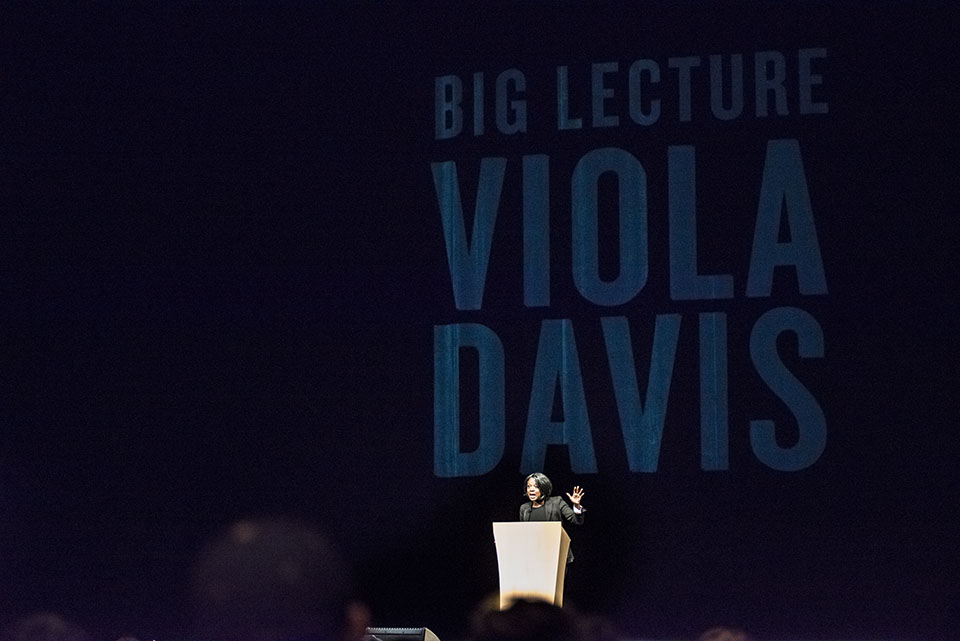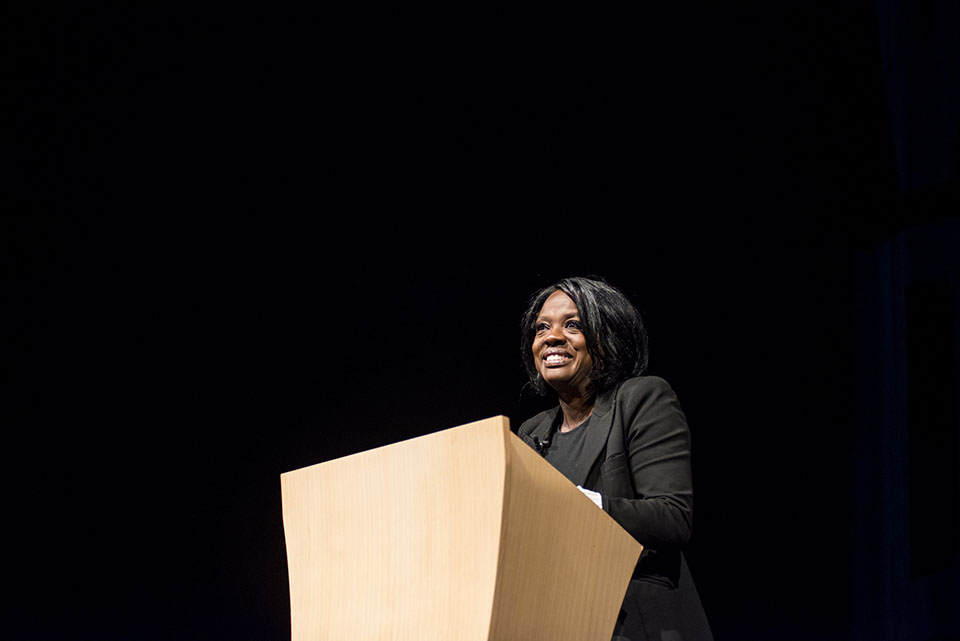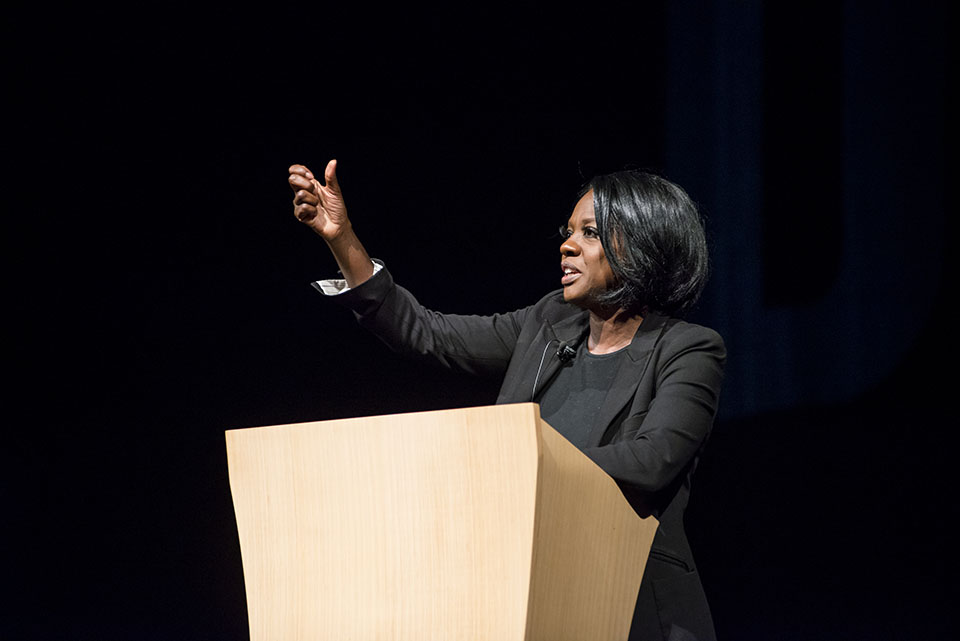Oscar Nominee Viola Davis Reflects on Her Extraordinary Life During Big Lecture to Headline Black History Month 2017 at CSUN
Golden Globe winner Viola Davis headlined California State University, Northridge’s Black History Month 2017 with a sold-out Big Lecture presented by Associated Students on Feb. 8 at the Valley Performing Arts Center.
Approximately 1,600 students, faculty and staff filled the VPAC’s Great Hall, where Davis delivered a powerful and moving speech.
“I’d like to introduce my speech by saying, ‘My name is Viola Davis and I am a hero,'” said Davis, eliciting applause and whistles from the audience. “I’m not a hero with a cape, or a golden lasso or a boomerang. I’m just your ordinary girl, living an extraordinary life with an extraordinary calling.”
Davis is currently up for the Oscar for Best Supporting Actress for her work in Fences. She also made history as the first African-American woman to win the prime-time Emmy for Outstanding Lead Actress in a Drama Series for her performance on How to Get Away with Murder. During the evening Davis spoke candidly about her career path, overcoming adversities in her life and the “call to adventure.”
She noted that the call to adventure in her life began at a young age and stayed with her on her journey to becoming an actress in Hollywood.
Davis was born in South Carolina. Shortly after her birth, her family moved to Central Falls, R.I., where, she recalled, most of her earliest memories were of being very poor.
She shared stories about her family’s home in Rhode Island and how their apartment was infested with rats and cockroaches, the plumbing hardly worked, plaster crumbled off the walls and the ceiling caved in.
Her mother and father grew up under the heavy boot of Jim Crow, never completing their high school diplomas.
“When you’re poor, there’s trickle-down effects,” said Davis. “So, I grew up with the violence, the alcoholism, and I grew up with the terror of coming home and thinking that my father has finally killed my mom. That was my existence.”
Davis recalled her school days in Rhode Island, among a predominantly white student body. She remembered the taunting, the racial slurs and how some of the boys would wait for her after school to throw things at her while they screamed profanities.
The actress said she was brought into an ordinary life where she just didn’t fit in.
Her “call to adventure” began at the age of 5, when Davis recalled how her older sister asked what she wanted to be when she grew up. Young Viola didn’t know how to answer her sister’s question — yet.
Davis recalled watching the autobiography of Jane Pittman, starring Cicely Tyson, and she was inspired to be like the women whom she saw on her television screen.
“All I saw was this woman who looked like me, who looked like my mother,” Davis said. “It was like looking at a magician pulling the rabbit out of its hat. It is the power of art and what we do that is transformational — it shifts us. And man, did it shift me.
“I said, ‘That’s what I want to do. That’s what’s going to get me out. That is what is going to make me do something bigger than myself. Oh my God, I’m going to be an actress.'”
Davis acted every chance she got at a young age, even on the school’s playground.
“Everything was about getting out, the ‘call to adventure’ and slaying dragons,” Davis said. “People don’t know that we aren’t just poor, black kids — we’re bigger than that.”
Davis attended The Juilliard School for four years and graduated at age 28, but she still believed and was insecure about all of the negative things people said about her as a young, black woman.
She thought that she had to be something other than herself in order to catapult her life into a higher sphere.
“There was nothing in my life that made me believe that I was anything else [other than what people said about me],” Davis said. “The big ‘aha!’ moment is that the call to adventure isn’t just the call to outward success.”
The narratives of African-American women in Hollywood have been so limited, she said. She described her feeling of confidence when she learned that her TV character of Analise Keating on How to Get Away with Murder was described as a sexy, dark-skinned woman, who was sociopathic, hard, strong and intelligent.
“The privilege of a lifetime is being who you really, truly are,” Davis said. “It is the power of owning your story — the failures, the successes, but also the joy and the beauty.
“Me living a life bigger than myself is me really wanting women of color, especially people of color, to be included in the narrative which is in Hollywood,” she said.
Members of the audience were attentive and the large hall fell quiet, with people hanging on Davis’ every word. As she concluded her remarks, the crowd rose and gave the award-winning actress a standing ovation
“I’m not a magical negro, I’m not a device, I’m not just someone who is a walking symbol of social change,” said Davis. “I am a woman, and I have a story.”




 experience
experience